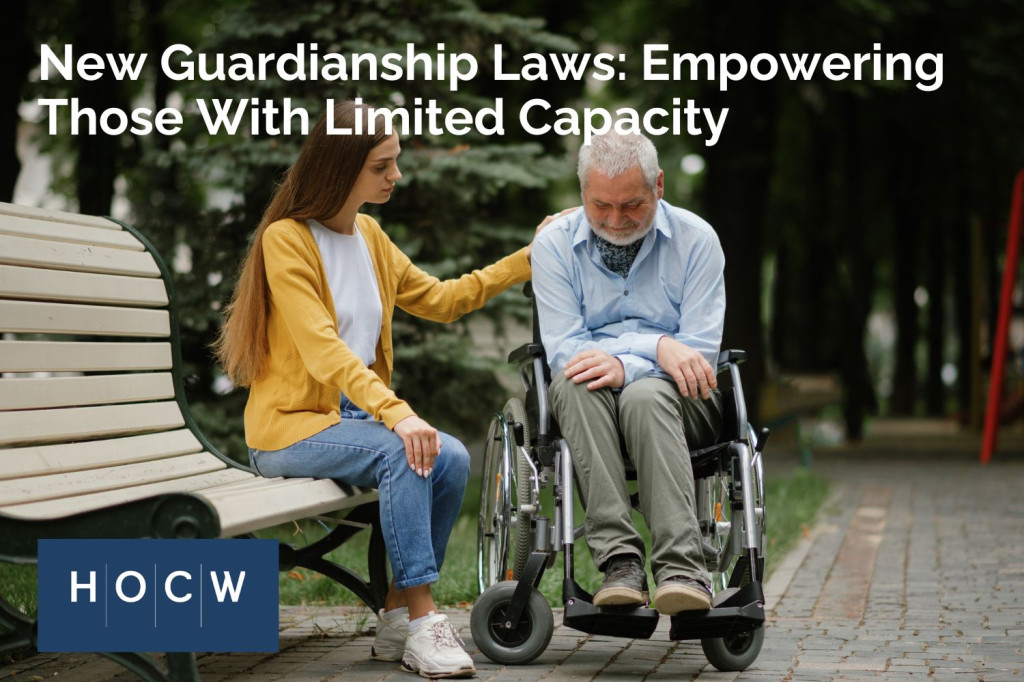Latest Guardianship Laws protect rights of adults with limited ability to make decisions
People with limited decision-making capacity may soon have more power to manage their own personal and financial affairs under legislation which will this month come into effect in Victoria.
The new guardianship laws aim to strike the balance between empowering and protecting Victorians whose capacity to make decisions is limited because of a disability.
The Guardianship and Administration Act 2019 (Vic) governs the appointments and powers of guardians and administrators and introduces supportive guardian and administrator appointments.
What are guardians and administrators?
The Victorian Civil and Administrative Tribunal (VCAT) can appoint a guardian or administrator for someone who has a disability and does not have decision making capacity in relation to at least some financial and/or personal or lifestyle matters.
Decision making capacity could be impaired because the person, who is known as a represented person, has:
a mental illness
dementia, or
an intellectual disability.
When making an appointment, VCAT must be satisfied that it will promote the person's personal and social wellbeing.
Under the new guardianship laws, VCAT is also able to make appointments known as supportive guardians for personal matters and supportive administrators for financial matters where a person with a disability does have decision making capacity if they are provided appropriate support. The role of a supportive guardian and/or administrator is to support a represented person to obtain information and make decisions.
What is decision making capacity?
Under the new guardianship laws, a person is presumed to have decision-making capacity unless proven otherwise. This new presumption mirrors recent changes to the Powers of Attorney Act 2014.
They will also be taken to have decision-making capacity if they are able to make a decision with appropriate support and will be deemed to have capacity if they can:
understand the information relevant to the decision,
retain that information, and
communicate the decision and their views and needs relating to the decision in some way, including by speech or gesture.
What sort of decisions can guardians and administrators make?
Guardians can be appointed to make decisions relating to a represented person's lifestyle. These might include:
where the represented person might live,
what support services they might access, and
what medical treatment they might receive.
Administrators can be appointed to make decisions relating to a represented person's finances. They might be appointed to:
pay bills on behalf of a represented person,
buy or sell property on their behalf, and/ or
manage their bank accounts.
Under the new laws, VCAT now has the power to tailor orders to suit the represented person's needs. For example, an administrator's role may be limited to buying a property on behalf of a represented person.
What if a guardian or administrator has done the wrong thing?
Guardians, administrators and supportive guardians and administrators who dishonestly use their appointments for financial advantage or dishonestly cause loss to the represented person or another person face fines and up to five years in prison.
How can I make an application?
Anyone can apply to VCAT on behalf of someone who has impaired decision-making capacity, particularly in cases where that person might be vulnerable to the influence of others.
Should you need assistance in relation to applying for a guardianship/administration order or have any estate planning needs, please do not hesitate to contact our Wills and Estates team on 03 9550 4600.


